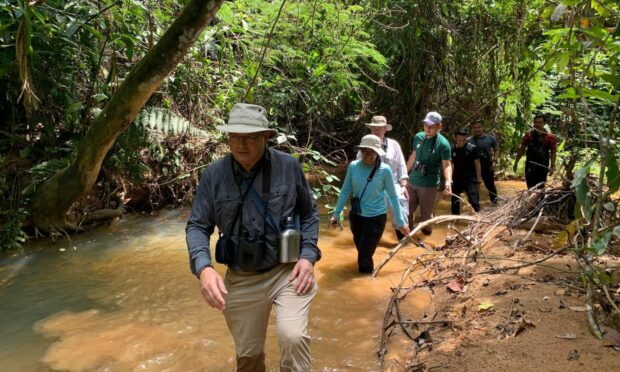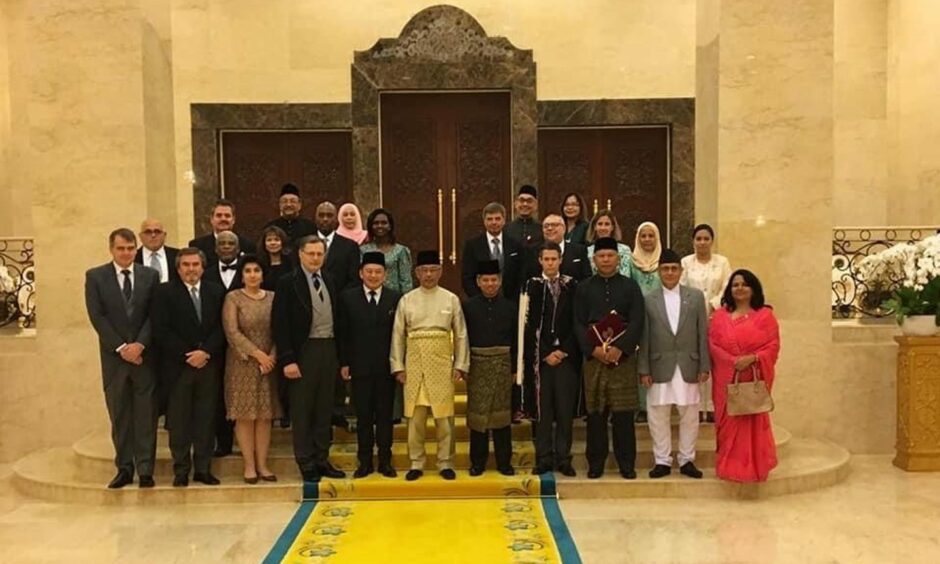An Aberdeen soldier is leading the UK’s fight to protect wildlife in Malaysia – as scientists debate whether a newly discovered hybrid monkey is the result of deforestation in the Asian country.
After facing gunfire and grenades on the battlefield in Northern Ireland, Charles Hay devoted himself to diplomatic service as the UK’s High Commissioner to Malaysia.
The 56-year-old, who joined the Gordon Highlanders in 1988 following in his great-grandfather’s footsteps, is heading the efforts to tackle climate and biodiversity issues.
It’s part of a new partnership between the UK and Malaysia with an agreement to tackle current climate change challenges and take action to preserve under-threat species.
Malaysia is estimated to have lost almost 2million hectares of its forests to logging and land clearing between 1990 and 2010.
Wildlife experts now believe loss of habitat in the country is behind the emergence of a mystery monkey as animals find themselves surviving in smaller areas.
The mixed species primate is likely to be the offspring of a male proboscis monkey (Nasalis larvatus) and a female silver langur (Trachypithecus cristatus).
Mr Hay said: “The discovery of this hybrid monkey highlights why the UK and Malaysia’s commitment to working together to protect biodiversity is so important.
“There’s much debate in the scientific community around whether the emergence of this mixed species monkey is the result of loss of habitat – but our governments are clear that we must build on COP26 in Glasgow to tackle climate and biodiversity issues.
“Malaysia has around 54% forest cover and is home to some of the oldest and most biodiverse forests in the world.”
Tackling climate change to preserve world for future generations
The new agreement comes after the UK announced new support to Southeast Asian countries, including Malaysia, at the COP26 climate conference in November.
A £110million ASEAN (Association of South-East Asian Nations) Catalytic Green Finance Facility was introduced to support new sustainable infrastructure projects.
Meanwhile, a £274million fund under the UK Climate Action for a Resilient Asia (CARA) programme will strengthen climate adaptation across the Indo-Pacific.
Mr Hay stressed the importance of such projects, which are vital to preserving forested areas across the world for future generations.
The dad-of-two added: “A couple of months ago I visited Sabah, where we are mapping out all of the villages that don’t have a connection to the electricity grid.
“I visited one remote village where we’ve helped install a micro hydro machine which runs off the local river and provides enough power for 52 homes.
“That is the sort of cheap, effective project we’re hoping to support more of. The UK has expertise we can pass on to help local people do more to help themselves.
“Climate change is now the biggest threat to my kids’ future so I’m proud the UK is leading on working with other countries to make a difference.”




Conversation